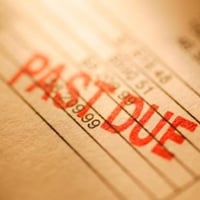The increasing number of companies going into liquidation and administration has sparked a proposal...
Director Penalty Notices: The ATO's Ultimate Accountability Tool for Directors

Ever heard of Director Penalty Notices (DPNs)?
They might sound intimidating, but understanding them is essential for anyone at the helm of a company.
The Australian Taxation Office (ATO) uses DPNs as a tool to make sure directors meet their tax obligations. These notices hold you personally accountable for unpaid company debts related to PAYG withholding and superannuation guarantee charges.
Right now, we'll break down what DPNs are, the types you might encounter, the consequences of receiving one, how to respond, and ways to prevent them.
Stick around—it's crucial info that can save you a lot of trouble down the line.
What are Director Penalty Notices?
Director Penalty Notices are legal notices issued by the ATO to company directors, making them personally liable for specific unpaid tax debts of their company.
This tool is designed to promote compliance and ensure that directors cannot simply avoid their company's tax obligations by liquidating or winding up the business.
DPNs focus on two main areas:
- Pay As You Go (PAYG) Withholding: The tax withheld from employees' wages which should be remitted to the ATO.
- Superannuation Guarantee Charge (SGC): The compulsory superannuation contributions that employers must make for their employees.
Types of Director Penalty Notices
There are two main types of DPNs:
- Non-Lockdown DPNs
Non-lockdown DPNs are issued when the company fails to meet its PAYG withholding or SGC obligations, but the relevant amounts were reported to the ATO within three months of the due date. Directors can avoid personal liability if, within 21 days of the DPN being issued, they either:
- Pay the outstanding amount,
- Appoint a voluntary administrator, or
- Begin winding up the company.
- Lockdown DPNs
Lockdown DPNs apply if the company fails to report its PAYG withholding or SGC obligations within three months of the due date. Once issued, directors cannot avoid personal liability by appointing an administrator or liquidating the company. The only way to avoid personal liability is to pay the outstanding amounts in full.
Consequences of Receiving a DPN
The consequences of receiving a DPN are severe, as they make directors personally liable for the company's unpaid tax debts. This can lead to significant financial and legal repercussions, including:
- Personal Financial Liability: Directors must pay the outstanding amounts from their personal assets if the company cannot pay.
- Legal Action: The ATO can initiate legal proceedings to recover the debt, which could result in bankruptcy if the director cannot pay.
- Credit Impact: A DPN can negatively impact the director's personal credit rating, affecting their ability to obtain credit in the future.
- Business Restrictions: Directors with unpaid DPNs may face restrictions in managing other companies.
How to Respond to a DPN
Upon receiving a DPN, directors should act swiftly to mitigate the consequences. Here are the steps to respond effectively:
- Immediate Action
Immediately review the notice to understand the type of DPN issued (non-lockdown or lockdown) and the specifics of the debt.
- Consult Professionals
Engage with financial advisors or legal professionals who specialise in tax and corporate law to understand your options and obligations.
- Pay the Debt
If financially feasible, pay the outstanding debt within the 21-day notice period to avoid personal liability.
- Consider Administration or Liquidation
For non-lockdown DPNs, consider appointing a voluntary administrator or beginning the process of winding up the company within the 21-day period.
- Communicate with the ATO
Maintain open communication with the ATO to discuss potential payment plans or other arrangements.
Preventing Director Penalty Notices
Prevention is always better than cure. Here are strategies to avoid receiving a DPN:
- Timely Reporting and Payment
Ensure timely and accurate reporting and payment of PAYG withholding and SGC obligations. Regularly review and reconcile payroll records to avoid discrepancies.
- Regular Audits
Conduct regular internal audits to ensure compliance with tax obligations and identify any potential issues early.
- Professional Advice
Engage with tax professionals and financial advisors to stay informed about the latest tax laws and compliance requirements.
- Financial Planning
Implement sound financial planning and management practices to ensure the company can meet its tax obligations even during tough times.
- Director Education
Ensure all directors understand their legal responsibilities and the implications of failing to meet tax obligations. Regular training and updates on compliance requirements are essential.
Director Penalty Notices are a significant enforcement tool used by the ATO to ensure company directors are held accountable for their tax obligations.
Understanding the types of DPNs, the consequences of receiving one, and how to respond is crucial for any director. By implementing proactive measures and maintaining compliance, directors can prevent the issuance of DPNs and safeguard their personal and financial well-being.
If you have concerns about unpaid super or other tax obligations, call us at 02 9411 5422 for expert advice and assistance.
Let us help you navigate the complexities of corporate tax compliance and protect your interests.




